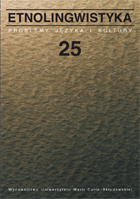Концепт ТРУД в белорусском языке по данным лексикографии
The concept of LABOUR in Byelorussian on the basis of lexicographic data
Author(s): Alla KozhinovaSubject(s): Language and Literature Studies, Applied Linguistics, Cognitive linguistics
Published by: Wydawnictwo Naukowe Uniwersytetu Marii Curie-Sklodowskiej
Keywords: labour; values; Byelorussian lexicography
Summary/Abstract: The author makes an attempt to compare the role of the lexical units pratsa and rabota, as well as their derivatives, in the formation of the concept labour in the Byelorussian language. She comes to the conclusion that the main content of the concept arises in the area of overlapping the semantic fields of these lexemes. Labour is a socially useful and officially organized activity which is performed within a certain time period. It should be mentioned that non-manual work is more important. Labour is both the duty of a human being and a means of one’s living arrangements. Although labour and subjects of labour (first of all employees) receive unambiguously positive evaluation, in the semantics of the lexemes being discussed latent negative attitude to heavy and dirty work appears, which often manifests the essence of labour.
Journal: Etnolingwistyka. Problemy Języka I Kultury
- Issue Year: 25/2013
- Issue No: 25
- Page Range: 201-217
- Page Count: 17
- Language: Russian

